
Sicily Sign Illustration. Coat of Arms of Sicily, Seal, Emblem Stock
Trinacria as a symbol of Sicily The symbol. The face of Medusa is present in the central part. It is a sort of talisman against negative energies, because the goddess had the power to petrify, with her eyes, her enemies. Countless snakes frame the face of Medusa, like a beautiful but frightening hair crown. Snake represents knowledge and wisdom.

Italy Sicily Taormina Symbol Of Sicily In Ceramic Stock Image Image
The Trinacria, a symbol composed of three legs joined at the hips and bent at the knees, has deep roots in the cultural history of Sicily. It has played an important role in religion, art, and government throughout the ages. The symbol is thought to represent the three corners of the island, and its original meaning remains somewhat of a mystery.

Detail Of The Symbol Of Sicily On A Ceramic Disc Scopello Stock Photo
The triskelion symbol is said to represent the three capes ( headlands or promontories of the island of Sicily), namely: Pelorus (Peloro, Tip of Faro, Messina: North-East); Pachynus (Passero, Syracuse: South); and Lilybæum (Lilibeo, Cape Boeo, Marsala: West), which form three points of a triangle from the historical three valli of the island.

Sicilian symbol Ancient Greek Symbols, Celtic Symbols, Ancient Romans
The emblem of Trinacria From the ancient Greek Trinakria, Trinacria literally means "three pointed". It is generally used to qualify a three-pointed area of land or undersea surface. Because its very shape is the perfect representation of Sicily, Trinacria was the name given to the island by the ancient Greeks in 3rd century BC.

The Traditional Heraldic Symbol Of Sicily Stock Illustration Download
The Symbol of Sicily is The Winged Head of Medusa, named Trinacria, and sitting atop the hillside of Monreale Cathedral in Sicily lies this iconic image that has held symbolic importance for centuries. Represented as a stone carving on the cathedral's façade, this representation is stunning, and its symbolism holds great power for Sicilians.
Trinacria, symbol of Sicily, Taormina, Stock Photo
In the Symbol of Sicily, the head of Medusa appears with entwined serpents hair and ears of corn . The ears of wheat represent the symbol of the fertility of the land. The Three Legs The three legs in the Trinacria Symbol stand for the three promontories of Sicily. Those promontories are Cape Pelorus, Cape Passero, and Cape Lilibeo.

The Sicilian Trinacria Sicily, Sicilian, Symbols
The symbol is known as 'Trinacria,' which originates from the Greek word for 'three-pointed' or 'three-legged.' It was the earliest known name of the island of Sicily and referred to the triangular shape of the island. The name was revived during the Sicilian Vespers (1282) when it came to be re-interpreted as a name for the Sicilian symbol itself.
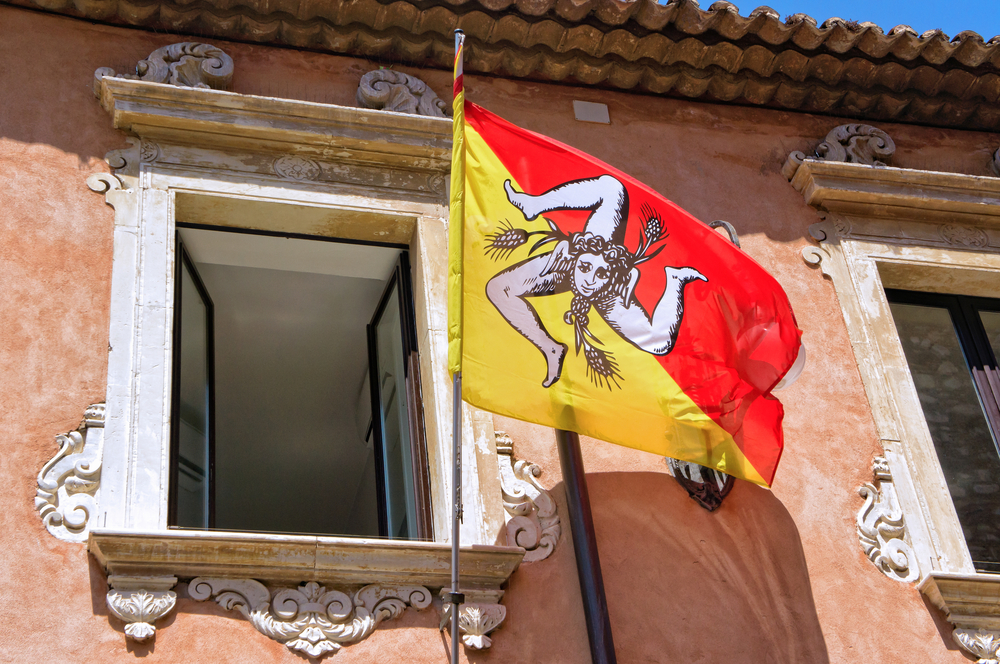
The Trinacria The Symbol of Sicily LivItaly Tours
The 10 most famous symbols of Sicily in the world Posted on Mar 18th, 2019 by Sicilian Food Culture Categories: Article Sharing is Caring! When you think of Sicily there are many symbols that come to mind, but there are some of them that among others clearly represent the island in the world.
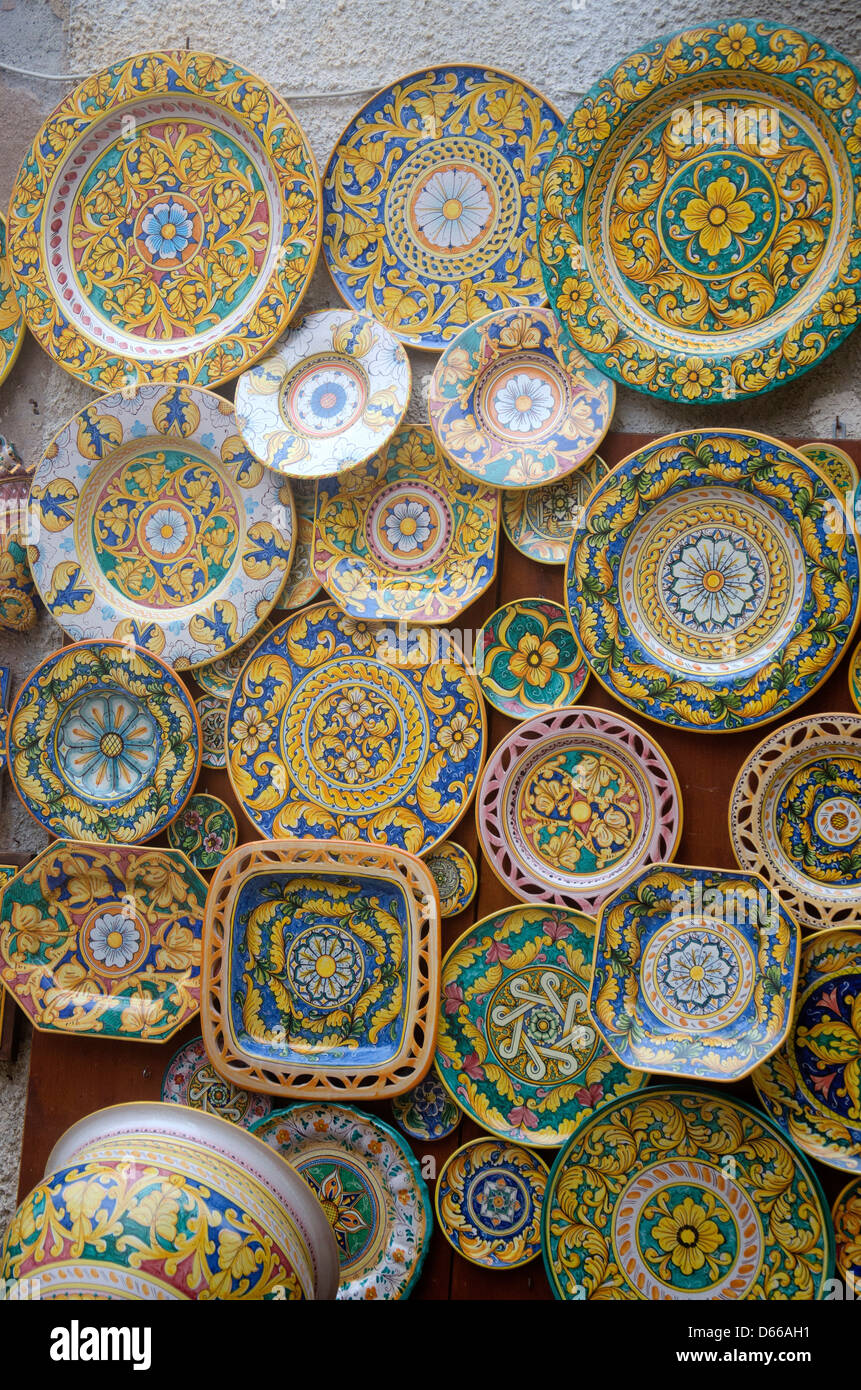
Symbol of the island of Sicily, Italy. Traditional souvenirs of
The symbol of Sicily known as the Trinacria or Triseklion is said to be derived from a myth about three nymphs. They are said to have danced all around the world gathering the best fruit, stones and soil, they then threw all of it into the sea and created Sicily.

flag of Sicily adopted in 1282. Depicts triskelion (trinacria), winged
It is often said that the three legs symbolize the three capes of Sicily: Peloro, Passero and Lilibeo which form the triangular perimeter of Sicily. The legs are specifically those belonging to a woman because they serve as a metaphor for the sensual, breathtaking beauty of the coastal beaches of Sicily.

What Does the Symbol of Sicily Mean? ITALY Magazine
Il simbolo è noto come Trinacria, una parola greca che significa 'tre punte', in riferimento alla forma dell'isola, che ricorda un triangolo. Trinacria fu il primo nome dato all'isola.
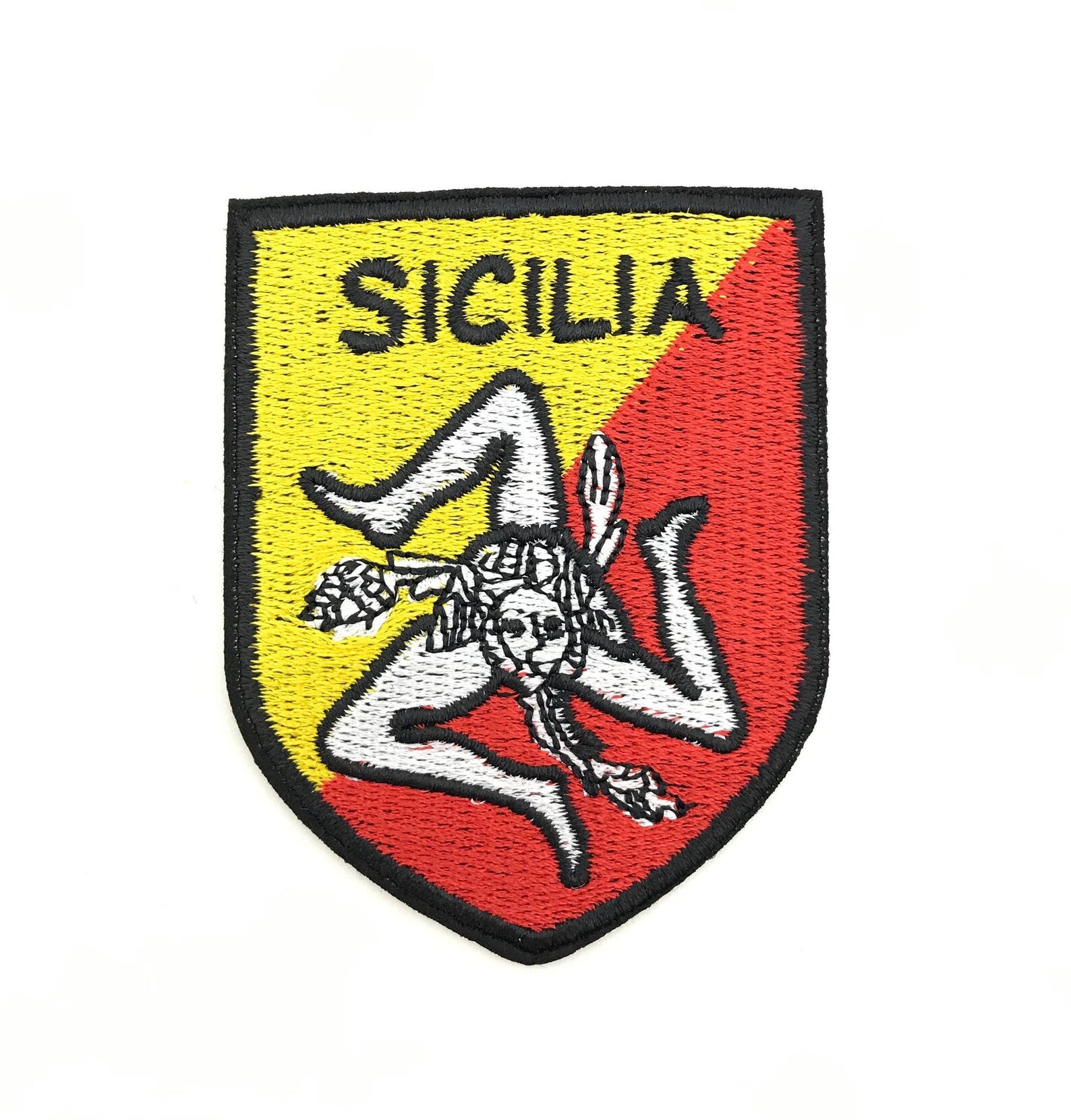
Patch Sicily Flag Patches Sicily Symbol Embroidered Diy Etsy
Sicily ( Italian: Sicilia [siˈtʃiːlja] ⓘ; Sicilian: Sicilia [sɪˈ (t)ʃiːlja] ⓘ) is the largest and most populous island in the Mediterranean Sea and one of the 20 regions of Italy. It is one of the five Italian autonomous regions and is officially referred to as Regione Siciliana. The island has 4.8 million inhabitants. Its capital city is Palermo.

Trinacria, Symbol of Sicily Stock Image Image of souvenirs, lemon
That's the symbol of Sicily. Trinacria was the earliest known name of the island of Sicily. The head refers to Greek mythology, it is said to be Medusa, a gorgon (monstrous creature) with a head of snakes, a beautiful woman seducing men who, upon looking at her, were turned into stone. The three stalks of wheat were added in Roman times, when.
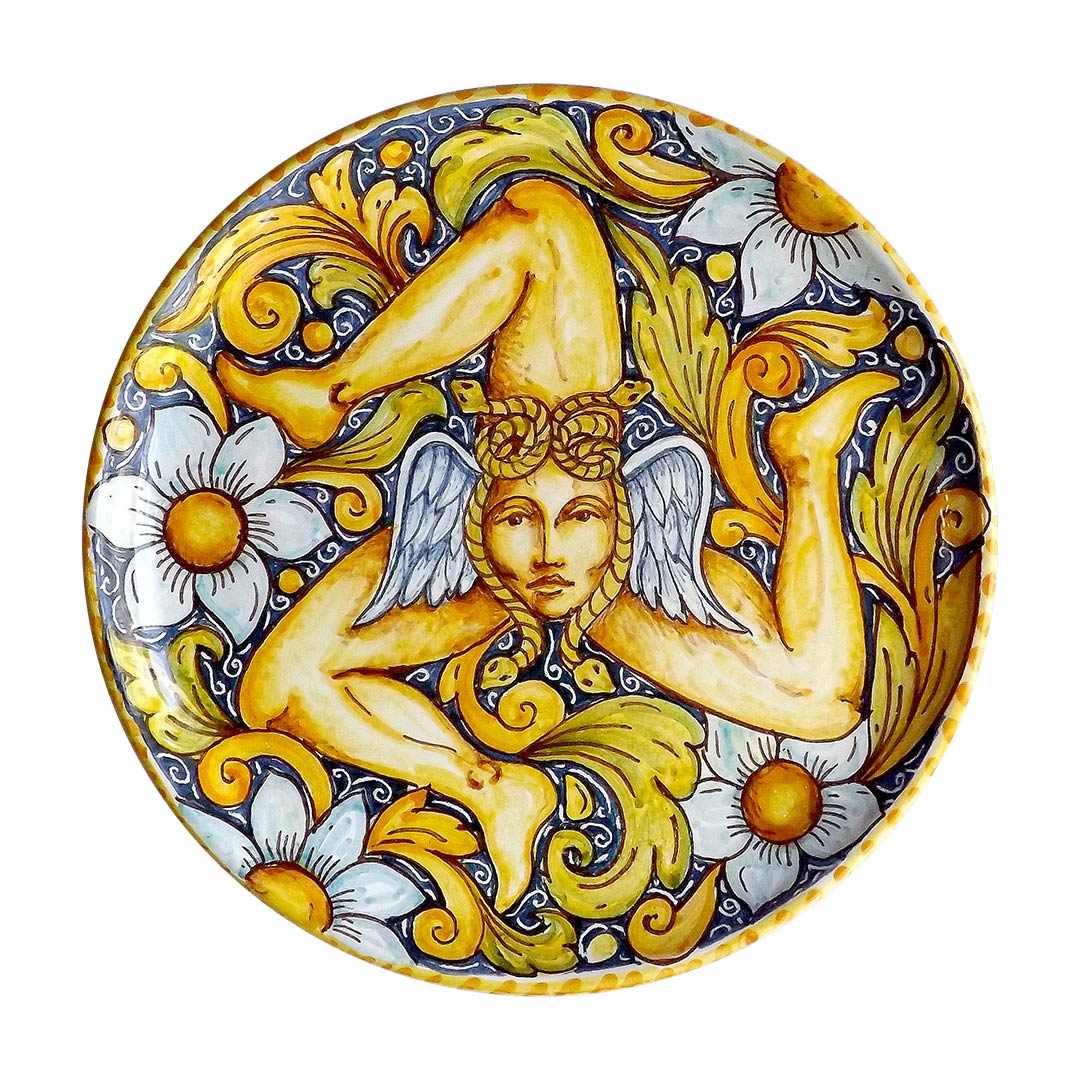
Threelegged Symbol of Sicily Ceramic Plaque
It is often said that the three legs symbolize the three capes of Sicily: Peloro, Passero and Lilibeo which form the triangular perimeter of Sicily. The legs are specifically those belonging to a woman because they serve as a metaphor for the sensual, breathtaking beauty of the coastal beaches of Sicily.
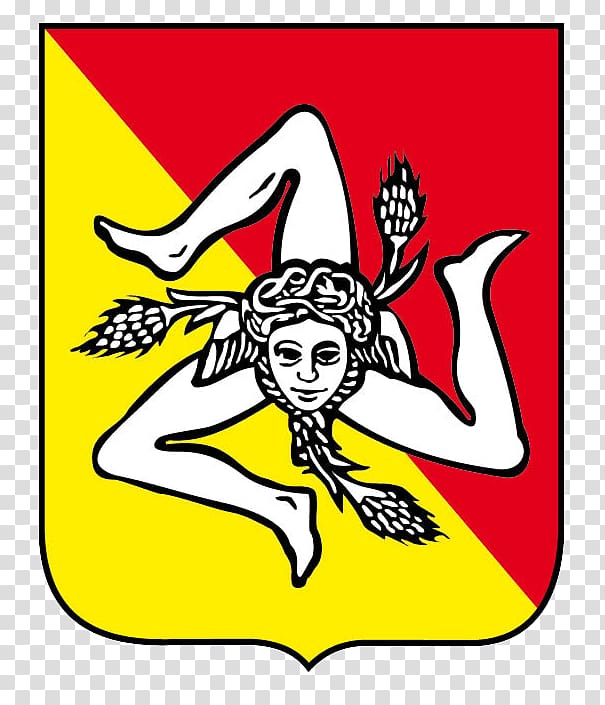
Flag of Sicily Trinacria Logo Coat of arms, others transparent
The Powerful Hand - Mano Potente Mano Cornuto - Hand of the Horn. Shaping the hand as if it had animal horns is said to put fear into the hearts of evildoers. Some even believe that the two fingers could be used to poke eyes out. The Trinacria - of course the most famous symbol of Sicily it symbolizes the triangular shape of the island itself.

Seven Ways to be Seduced by Sicily FranGallo's Blog
Thus was born Sicily, with its characteristic triangular shape. Trinacria, along with the Moor's heads, the Sicilian cart and the Sicilian puppets, is another of the symbols that best expresses the true essence of Sicily: an island rich in history, influences of Greek myths, strong and extravagant. by Beatrice Saura